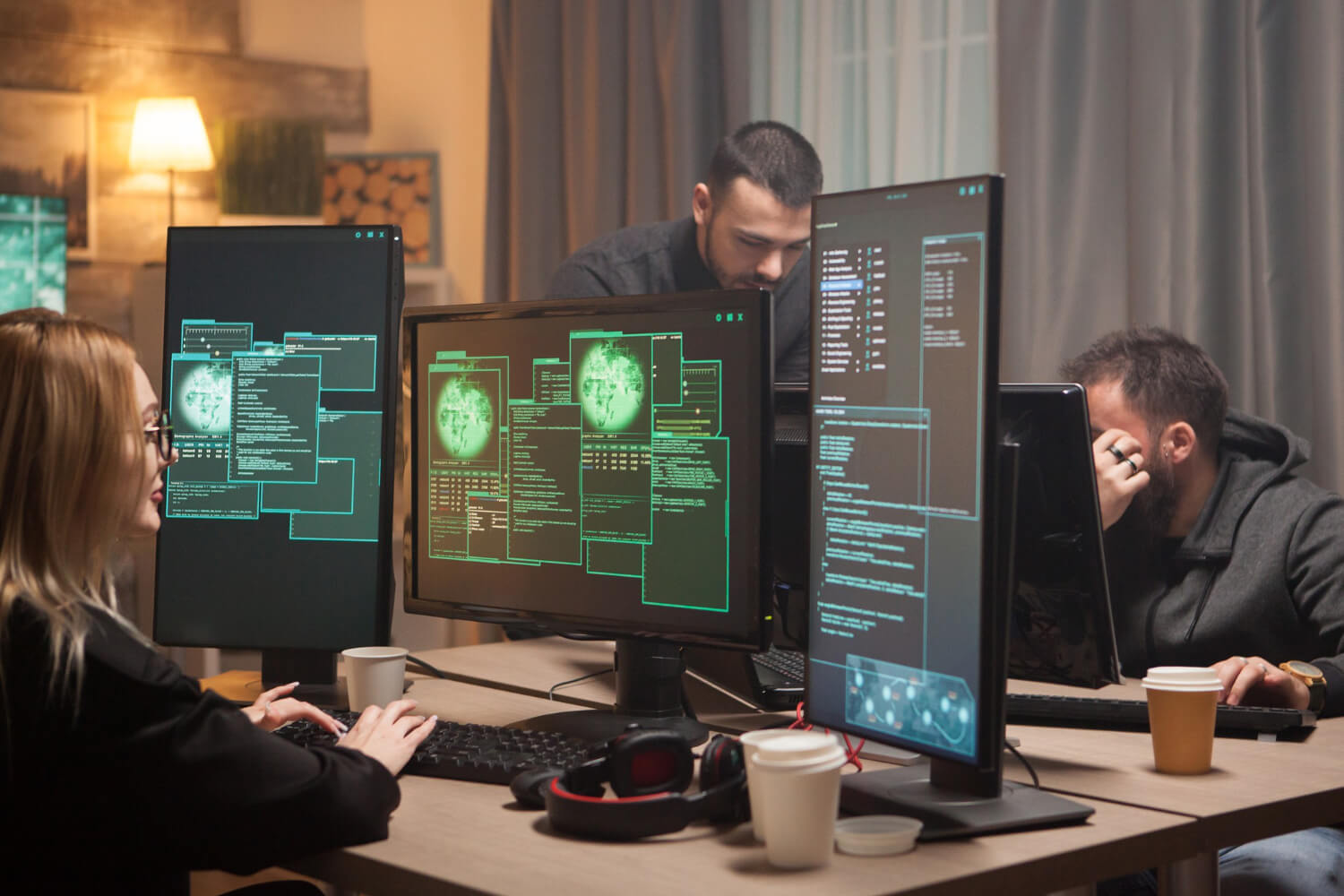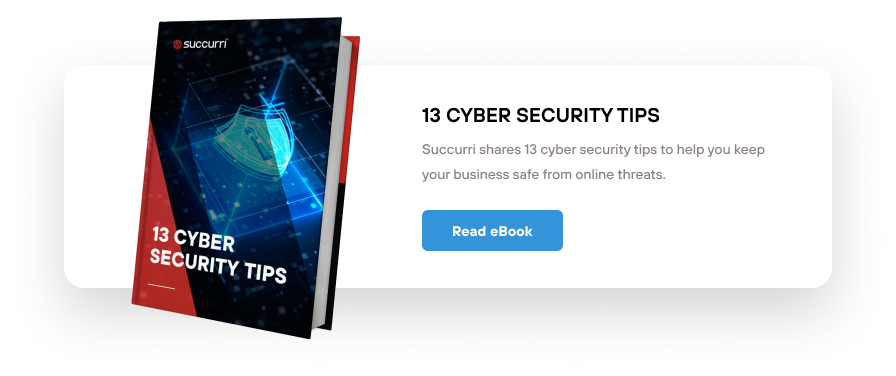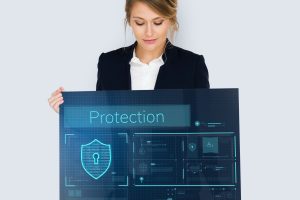Cyber security and IT security, both terms often used interchangeably, actually have slight differences in their scope.
On the other hand, while cybersecurity primarily deals with safeguarding digital information from cyber threats, IT security takes a comprehensive approach to protect both digital and physical assets within an organization.
Let’s explore both disciplines further.
What Is IT Security?
IT security, which stands for Information Technology security, has a broader scope. It encompasses protecting digital information and physical assets, such as hardware, software, and the entire IT infrastructure.
IT security covers a wider range of areas, such as data centers, physical access controls, disaster recovery plans, employee training, and policies and procedures to ensure the overall security of IT assets and operations.
Techniques Implemented
Security analysts are responsible for developing disaster recovery plans that provide organizations with guidelines to follow in times of emergency. These plans can include copying and storing data in the cloud, as well as establishing a framework for resuming IT operations following a natural or man-made disaster. Additionally, information security professionals regularly test the measures they intend to implement.
On the other hand, cybersecurity responsibilities involve ensuring software is up-to-date, managing passwords, and using firewalls and anti-virus protection. Cybersecurity policies may also require two-factor authentication to access devices, software, or any information stored on the network.
What Is Cyber Security?
Cybersecurity, also known as cybersecurity, focuses specifically on protecting computer systems, networks, and data from unauthorized access, damage, or theft. It involves ensuring the confidentiality, integrity, and availability of digital information.
Cybersecurity measures can include a range of techniques such as implementing firewalls, antivirus software, encryption techniques, intrusion detection systems, and conducting regular vulnerability assessments.
Firewalls can help block unauthorized access to a computer or network, while antivirus software can protect against known malware and viruses. Encryption techniques can help protect sensitive data by encoding it so that it can only be accessed by authorized parties. Intrusion detection systems can monitor network traffic and alert administrators to any suspicious activity.
Regular vulnerability assessments can help identify weaknesses in a system and ensure that proper measures are taken to mitigate any potential risks. By implementing these cybersecurity measures, individuals and organizations can help protect themselves against cyber threats and ensure the safety and security of their data.
Cyber Security vs IT Security: Key Differences
Cyber Security and IT Security are often used interchangeably, but they have distinct differences in the field of technology and data protection.
Here are the key differences between the two:
1. Scope
IT Security, or Information Technology Security, protects an organization’s information systems, infrastructure, and technologies. It encompasses secure network administration, securing databases, access control, and securing hardware and software components. On the other hand, Cyber Security is a broader term that includes protecting not only information systems but also data, networks, programs, and devices from cyber threats like hacking, data breaches, malware, and other cyber-attacks.
2. Protection focus
IT Security primarily deals with internal threats and focuses on maintaining the confidentiality, integrity, and availability of information systems and assets within an organization. It ensures that unauthorized users do not gain access to sensitive information or disrupt the functionality of IT systems. Cyber Security, however, has a wider scope as it also encompasses external threats. It focuses on protecting systems and data from external attackers who exploit vulnerabilities and utilize various attack techniques.
3. Approaches and methodologies
IT Security relies on various methodologies and best practices to secure IT infrastructure and networks. It includes implementing firewalls, intrusion detection systems, encryption techniques, access controls, and user authentication mechanisms. Cyber Security employs similar methods but emphasizes proactive measures like threat intelligence and vulnerability assessment. It also includes incident response plans, risk management strategies, and employee training to mitigate cyber threats.
4. Skills and expertise
IT Security professionals need a strong understanding of networking principles, hardware and software configurations, and security protocols. They primarily focus on maintaining and securing networks and systems within an organization.
In contrast, cybersecurity professionals require more specialized skills and expertise. They must understand the advanced threat landscape, cyber-attack techniques, malware analysis, and encryption technologies and have a broader view of IT security risks and compliance requirements.
5. Scope of impact
IT Security breaches may have eternal consequences, such as disruption of business operations, loss of sensitive data, or compromise of internal systems. Cyber Security breaches, however, have broader implications as they can impact the organization and its customers, partners, and suppliers. A cyber-attack can lead to financial losses, reputational damage, legal implications, regulatory non-compliance, and loss of customer trust.
While IT Security focuses mainly on protecting internal systems and infrastructure, Cyber Security is a broader discipline that addresses external threats and includes protecting data, networks, programs, and devices. Both are essential for a comprehensive security strategy, with Cyber Security taking a more proactive and holistic approach.
Core Focuses of IT Security
In the digital world, IT security is crucial for every organization. With growing cyber threats, data security is a top priority for businesses. Here are a few of those key areas that require robust safeguarding.
Information Security:
Protecting both your physical and electronic data from potential threats requires a set of tools and strategies, which is known as information security. The core principles of information security are essentially the same as the main objectives of IT Security, which are to ensure the confidentiality, integrity, and availability of your valuable information.
Disaster Recovery:
A corporate disaster recovery system is a comprehensive solution that helps businesses prepare for and recover from disruptive events such as cyber-attacks, natural disasters, power outages, and other unforeseen circumstances. It involves backing up critical data, systems, and applications to a secure offsite location and having a plan in place to quickly restore them in the event of a disaster.
This allows businesses to minimize downtime, maintain business continuity, and minimize the financial impact of any disruptions. Disaster recovery solutions typically involve a combination of hardware, software, and processes, and they are customized to meet the specific needs of each organization.
Network Security:
Involves the protection of client data and shared data, as well as safeguarding your workstations from spyware, ensuring data encryption and transmission through independent pathways and constantly monitoring for suspicious activities to prevent any downtime.
Filter and Stop Spam Emails:
The influx of spam emails can be a nuisance and lead to potential security threats. These emails can contain harmful malware that can infect your device. However, by installing anti-spam software, you can permanently remove spam from your inbox without having to manually delete them. This not only saves you time but also helps you avoid the risks associated with opening spam emails. In the long run, anti-spam software can save you money by preventing any damages that may be caused by malicious emails.
DFARS:
If your business deals with the Department of Defense (DoD) contracts, it is mandatory to comply with the DoD Federal Acquisition Regulation Supplement requirement. This is done to protect sensitive military information from foreign threats. Succurri can assist you in ensuring that your business adheres to these security standards.
HIPAA Compliance:
HIPAA Compliance is an IT security policy that outlines the rules for keeping your medical information, treatment plan, and payment methods confidential. Only you, your medical provider, and other parties you authorize are allowed access to this information. If you work in the healthcare industry, you know how crucial it is to comply with HIPAA regulations and maintain robust IT systems to ensure your patients’ privacy.
Content Filtering:
Content filtering is a process that involves using a program to scan for inappropriate content and prevent users from accessing certain web pages. Firewalls, on the other hand, are designed to block specific keywords or images, which means that users can only view work-related content. This is why you may receive an “access denied” message when attempting to visit social media sites while at work.
How to Choose the Right Security System
Choosing the right security system for your home or business is a crucial decision you have to make to ensure safety and protection. With numerous options available in the market today, it can be overwhelming to determine which system would best suit your needs.
However, you can make an informed decision by considering several important factors.
Assess Your Specific Security Requirements.
Consider the property size, the number of entry points, and the level of security you desire. Determine if you need a basic alarm system, surveillance cameras, access control systems, or a combination of these. Understanding your unique needs will help you narrow down the options and select a system that will effectively meet your security goals.
Consider the Cost and Budget for the Security System
It is necessary to clearly understand the initial investment, ongoing maintenance costs, and any additional fees associated with monitoring services. These expenses will vary depending on the features and complexity of the system you choose. Setting a budget and weighing the costs against the benefits will assist you in making a financially viable decision.
Reliability and Reputation of the Security System Provider
If you’re interested in purchasing security products or services, it’s important to do your research beforehand. You can start by looking up different companies online and reading customer reviews to get a sense of their level of expertise, customer service, and overall satisfaction.
A trustworthy provider should be able to offer professional installation, excellent customer support, and reliable products that can withstand potential security threats. By taking the time to do your due diligence, you can have peace of mind knowing that you’ve chosen a provider that will meet your security needs and provide you with the highest level of service possible.
Compatibility with Existing Infrastructure
It is important to ensure that the security system you choose is compatible with your existing infrastructure or any future expansions. Technology is constantly evolving, so selecting a system that can adapt and integrate with other devices, such as smartphones, tablets, or home automation systems, will offer you more flexibility and convenience.
Choosing the right security system requires careful consideration of various factors, including your security requirements, budget, reliability of the provider, compatibility with existing infrastructure, and seeking professional advice. By making an informed decision, you can ensure that your home or business remains protected and secure.
Succurri: Helping You With All Your IT Security Needs
IT Support
They offer comprehensive and quick support for all information technology needs. Their aim is to enable smooth operations and speedy issue resolution.
Networking
They have a team of skilled professionals who specialize in network infrastructure administration and business process automation. Their focus is on enhancing efficiency, promoting reliability, and strengthening the connection to business success.
Cloud Solutions
Their company offers software solutions that are specifically designed for cloud services, providing data storage, collaboration, and scalability features. These solutions are flexible and accessible from anywhere, enabling users to effectively manage their data and collaborate with others.
IT Security
Their system has several measures in place to protect against online threats. These include data encryption, firewall configuration, antivirus software, and proactive monitoring.
Phone Systems
They provide reliable and effective communication solutions, including VoIP systems, unified communication platforms, and seamless integration with their company’s processes.
Our team of experts is always ready to assist and provide you with the best solutions to keep your data and systems safe and secure. Don’t hesitate to contact us if you have any questions or concerns. We look forward to working with you!
Thank you for considering Succurri for your IT security needs.
Want to learn more about what a Managed Security Services Provider is? Listen to Succurri partner, Grant Eckstrom, and Fractional CMO, Tony Lael, discuss the topic in more depth in this video.






